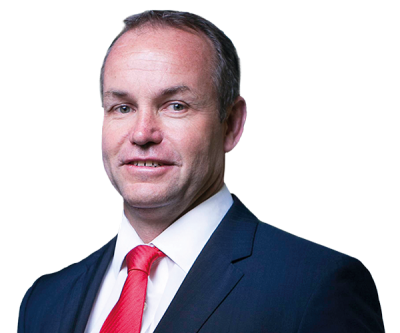
Duties of a director of a company in financial difficulty under British Virgin Islands law
This legal guide summarises the scope of directors’ duties when a British Virgin Islands company encounters financial difficulties.
Introduction
This legal guide should be read in conjunction with the legal guide entitled “Duties of a director under British Virgin Islands Law” which describes in further detail the duties which British Virgin Islands law imposes on a director generally.
It should be noted that in this summary, reference is only made to the law of the British Virgin Islands. In the case of the directors of many British Virgin Islands companies, the law of other jurisdictions and the approach of the Courts of those jurisdictions may have a significant impact on the standard expected from directors. The questions (a) whether a foreign Court would apply the law of the British Virgin Islands and (b) if not, what law or laws it would apply, are matters on which the advice of legal counsel qualified in the relevant jurisdictions should be sought. The following summary therefore assumes that the relevant issues would fail to be dealt with by an application of the law of the British Virgin Islands, either by the British Virgin Islands Court or by a foreign Court applying purely British Virgin Islands law.
To whom are a director’s duties owed?
A director, in exercising his powers or performing his duties, must act honestly and in good faith and in what he believes to be the best interests of the company. He must also exercise the care, diligence and skill that a reasonable director would exercise in the same circumstances. The duties are owed to the company.
Section 120 of the BVI Business Companies Act 2004 (as amended) (the “Act”) permits a director of a company to exercise his powers and perform his duties in the best interests of that company’s holding company even in circumstances where it may not be in the best interests of the company itself. Notwithstanding that a director in those circumstances will act in accordance with the best interests of the holding company, his duties remain owed to the subsidiary company.
The question which follows is: what are the best interests of the company (or holding company, as appropriate)? In the ordinary course, the best interests of the company will be equated with the best interests of the company’s shareholders. That is because generally it is the shareholders who have the principal economic interest in how the company’s affairs are being managed. If the company’s business is managed successfully, the shareholders’ equity investment will increase in value; if it is not, the value of the investment will fall.
However, when a company encounters financial difficulties and is insolvent or is of doubtful solvency, the directors must consider the creditors’ interests as part of their duty to act in the interests of the company itself. Upon insolvency or doubtful solvency it is the general body of the company’s creditors that has the principal economic interest in the company and therefore in considering what is in the company’s best interests in those circumstances, the directors must have regard to what is in the best interests of the general body of creditors.
This does not mean that creditors will have a direct right of action against the directors or the company for not considering their interests, but it does mean that the company itself (usually through a liquidator appointed following the company’s insolvency) can bring an action against a director for breach of duty. For the sake of completeness it should be noted that there has been some suggestion, including in the United Kingdom House of Lords and the Canadian Supreme Court, that directors may owe a duty to creditors directly. However, the few cases that have hinted at such a duty have not been followed and have been the subject of much academic criticism. The general consensus is that the directors’ duties are owed to the company, which may reflect the interests of the shareholders or the creditors depending on the circumstances outlined above. We think it unlikely that the directors of a British Virgin Islands company would be held to owe a duty directly to creditors.
Insolvency
Under section 8 of the Insolvency Act 2003 (as amended) (“Insolvency Act”), a company is insolvent if (i) it fails to comply with the requirements of a statutory demand, or (ii) execution or other process issued on a judgment, decree or order of a British Virgin Islands Court in favour of a creditor of the company is returned wholly or partly unsatisfied, or (iii) the value of the company’s liabilities exceeds its assets (the “balance sheet” test), or (iv) the company is unable to pay its debts as they fall due (the “cash flow” test).
Monitoring the position of the company
It is essential that the directors of a British Virgin Islands company regularly monitor its financial position in light of the balance sheet and cash flow solvency tests. This must be done as regularly as the circumstances require. It should be undertaken on a daily basis if the company is in serious financial difficulty.
In order to reduce the risk of personal liability for breach of their duties to the company, it is advisable for directors to ensure that the following steps are taken if it appears that the company may be getting into financial difficulties. These should be taken as referring both to executive and non-executive directors.
- All directors should be familiar with the financial affairs of the company at all times.
- Formal board meetings should be convened regularly in order to review the company’s position and to enable the directors to form a commercially responsible view about the way forward in the best interests of the company, bearing in mind the meaning of that phrase referred to above.
- The directors should consider protecting their position by seeking the appropriate professional advice.
- Directors must ensure that their decisions (and the business rationale for them) are carefully minuted.
- As a general rule, directors must not prefer the interests of one creditor (or group of creditors) over the general body of the company’s creditors unless there is a legitimate commercial reason for doing so. For example, if a director causes the company to repay a sum owed to a creditor connected to that director in circumstances where the company’s other creditors are unlikely to recover their debts in full, that director risks personal liability, and the amounts paid to that creditor could in certain specific circumstances be recovered by a liquidator with the company in due course.
The law is not intended to discourage directors from taking legitimate business risks, but it is intended to ensure that directors act properly and responsibly. The steps listed above are intended to enable the directors’ conduct, as far as possible, withstand scrutiny at a later date.
Insolvency - Consequences for directors
If the directors suspect that the company is (or may become) insolvent, for example because in their view the company fails the “balance sheet test” or it simply cannot meet its obligations on an ongoing basis, the basic principles of director’s duties remain the same: the directors must act in the best interests of the company. As indicated above, in those circumstances, the best interests of the company will be equated to the best interests of the company’s creditors.
The directors will therefore need to consider whether it is appropriate for the company to continue to trade. A decision to continue to trade may be justifiable if the directors can reasonably form the view that the company has a good prospect of trading out of its difficulties, for example by reaching a compromise or negotiating amended terms with its principal creditors. The directors’ position will be assisted if they have the benefit of appropriate professional advice, such as revised business plans, cash flow projections and the like prepared by accountants.
If the directors form the view that there is no reasonable prospect of the company trading out of its current difficulties, the most appropriate course of action will invariably be for the directors to take advice (if they have not already done so) from an expert in reconstruction and insolvency on the formal procedures which exist to protect the interests of creditors, and to reorganise a company’s affairs. Prudent directors will obtain advice at an earlier stage to ensure that creditors’ interests are not prejudiced by the lack of contingency planning. Given that many British Virgin Island companies have businesses and assets outside the British Virgin Islands, it is important to note that formal reorganisation or insolvency strategies are likely to require the input of experts in other jurisdictions as well as the British Virgin Islands.
Legal action against directors personally
Given that the directors’ duties are owed to the company (as mentioned above) any formal steps against the directors on the basis that they did not act in the best interests of the company will almost invariably have to be taken by the company itself, although the Act permits a member in certain circumstances to pursue a derivative action on behalf of the company, for example against the directors for breach of their fiduciary duties. If the company is in liquidation such action will be taken by a liquidator who may, as agent of the company, seek damages from the directors for breach of their duties. Typically, a liquidator will be encouraged by the company’s creditors to investigate the role played by the directors in the company’s collapse and if appropriate to pursue the relevant directors personally.
Unless he can show he took every step reasonably open to him to minimize the loss to the company’s creditors, a director who knew or ought to have concluded that there was no reasonable prospect that the company would avoid going into insolvent liquidation may be ordered to contribute to the assets of the company in liquidation for the benefit of its creditors.
A director may also be required to compensate the company or contribute to its assets if (i) he has misapplied or retained or become accountable for any money or other assets of the company, or has been guilty of any misfeasance or breach of any fiduciary or other duty in relation to the company, or (ii) was knowingly party to the company carrying on its business prior to liquidation with the intent to defraud creditors of the company or creditors of any other person, or for any fraudulent purpose.
In addition a director will be guilty of a criminal offence if he has made or caused to be made any gift or transfer of, or charge on, or has caused, permitted or acquiesced in the levying of any execution against, the company’s assets, or has concealed or removed any of the company’s assets since, or within, sixty days of the date of any unsatisfied judgment or order for the payment of money obtained against the company, unless such conduct occurred more than five years before the commencement of the liquidation or he can show he had no intent to defraud the company’s creditors.
In serious cases, for example where a director had been ordered by the British Virgin Islands Court to compensate the company or to contribute to its assets, or has been convicted of a criminal offence, the Official Receiver may apply to the British Virgin Islands Court for a disqualification order. A director can be disqualified for up to ten years, during which period he cannot act as a director or take part, whether directly or indirectly, in the promotion, formation or management of a company.




